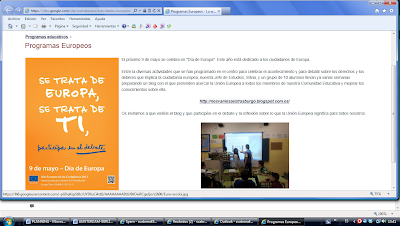A brief history of the European Union
1950
— French Foreign Minister Robert Schuman proposes integrating the coal and
steel industries of Western Europe.
1951
— The European Coal and Steel Community (ECSC) is established, with six
members: Belgium, West Germany, Luxembourg, France, Italy and the Netherlands.
A supranational body, called the High Authority, is created to manage the coal
and steel industries.
1957
— The six members of the ECSC sign the Treaties of Rome, creating the European
Economic Community (EEC) and the European Atomic Energy Community. The EEC
member states aim to remove trade barriers between them and form a common
market.
1967
— The institutions of the three European communities are merged, creating a
single commission, a single council of ministers and a European parliament.
1979
— The first direct elections for the European parliament are held, allowing
citizens to vote for candidates.
1993
— The Treaty of Maastricht creates the European Union, paving the way for
monetary union.
2002 —
A single currency, the euro, replaces national currencies in 12 of the 15
countries of the EU.
2004
— In its largest expansion, the EU welcomes 10 new countries, and a new
constitution is signed.
2005
— The move to ratify the constitution suffers setbacks when France and the
Netherlands reject the document.
2007
— Bulgaria and Romania join the EU, expanding the union to 27 member states.
2008
— The value of the euro reaches an all-time high on July 18 at 1.5843 to the
dollar. But the worldwide recession begins to take its toll on the currency and
European economies later in the year.
2009
— In December, the world's three main credit ratings agencies downgrade
Greece's debt, sending financial markets tumbling and raising concerns about
other weak European economies like Portugal, Spain, Ireland and Italy.
2010
— As the EU struggles to contain the debt crisis, Standard & Poor's in
April downgrades Greece's sovereign debt to junk status, and cuts Portugal and
Spain's credit ratings. Eurozone finance ministers meet in May to approve a
110-billion-euro loan package to Greece. In June, the euro reaches a four-year
low, falling below $1.19.
HERE you´ll see a more detailed history and a description of the founding fathers (from www.europa.eu )






